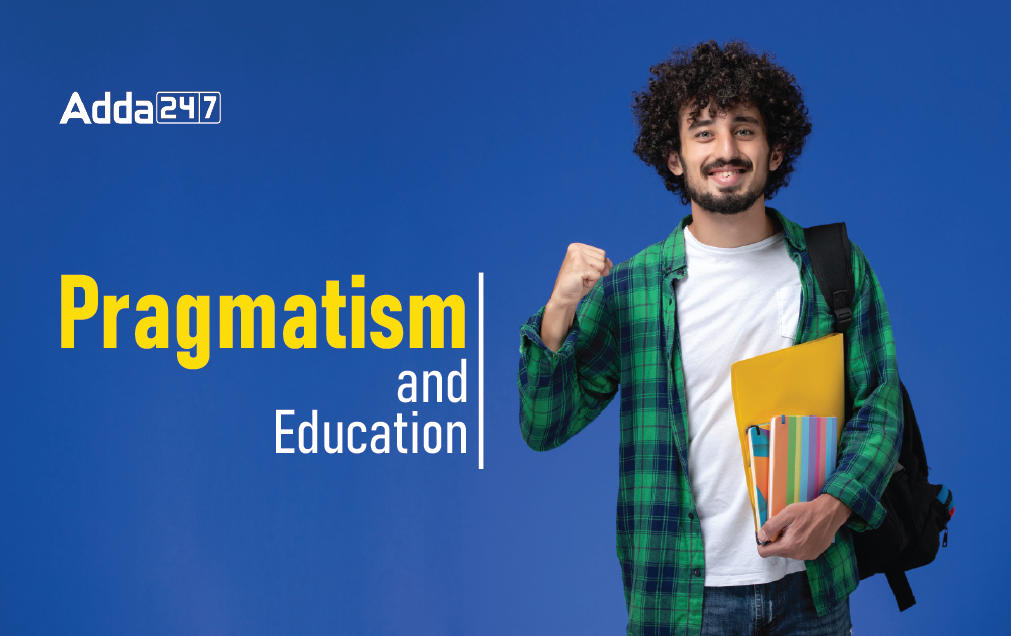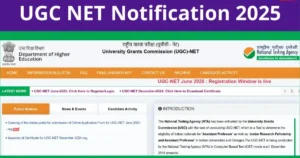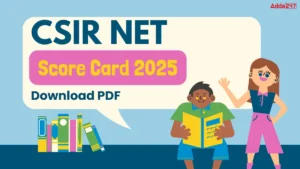Table of Contents
Pragmatism is an educational philosophy that says that education should be about life and growth. Pragmatic education prepares the child for future life in a very effective manner. Pragmatism and education works for child future. Here we are going about Pragmatism and education – Its Aims, Education, Curriculum and Teaching Methods.
PRAGMATISM AND EDUCATION/ व्यावहारिकता और शिक्षा
Pragmatism is a philosophy that reflects characteristics of American life. Pragmatism has also been called instrumentalism and experimentalism. The word pragmatism has been derived from the Greek word “Pragma” which means action or word done. According to William James, pragmatism is a temper of mind and attitude. It is also a theory of the nature of ideas and truth and finally it is theory about reality.
- According to Reid, pragmatism makes activity, engagement, commitment and encounter to contract them.
- According to Rusk, pragmatism is merely a stage in the development of new idealism, an idealism that will do full justice to reality, reconcile the practical and spiritual values and result as a culture which is the flower of efficiency and nor the negation of it.
व्यावहारिकता एक दर्शन है जो अमेरिकी जीवन की विशेषताओं को दर्शाता है। व्यवहारवाद को वाद्यवाद और प्रयोगवाद भी कहा गया है। व्यावहारिकता शब्द ग्रीक शब्द “प्रग्मा” से लिया गया है जिसका अर्थ है क्रिया या किया हुआ शब्द। विलियम जेम्स के अनुसार, व्यावहारिकता मन और दृष्टिकोण का एक स्वभाव है। यह विचारों और सत्य की प्रकृति का भी एक सिद्धांत है और अंत में यह वास्तविकता के बारे में सिद्धांत है.
- रीड के अनुसार, व्यावहारिकता उन्हें अनुबंधित करने के लिए गतिविधि, जुड़ाव, प्रतिबद्धता और मुठभेड़ बनाती है।
- रस्क के अनुसार, व्यावहारिकता नए आदर्शवाद के विकास में केवल एक चरण है, एक आदर्शवाद जो वास्तविकता के साथ पूर्ण न्याय करेगा, व्यावहारिक और आध्यात्मिक मूल्यों को समेटेगा और एक संस्कृति के रूप में परिणाम देगा जो दक्षता का फूल है और न ही इसका निषेध।
CHIEF ASSERTIONS : –
- Changing nature of eternal values : – According to pragmatism truth is made by man. According to Dewey, “Truth is made just as health, wealth and strength are made in the course of experience”. In the changing world, nothing is true or good for ever. What was good yesterday may cease to be good today. It denies permanent values. Man has to create his own values.
- Reality still in making : – For pragmatist, reality is still in the making. It is to be made and created and remolded to suit our purpose or desire. The universe is always in a state of change and flux.
- Faith in experimentation : – Nothing is good or bad before it is tested by experiment. Only that thing is good and beautiful which emerges out successful after experimentation.
- Faith in present and immediate future : – Past for pragmatist is dead and gone. Pragmatist remains confined to the immediate problem and look towards the immediate future. Values are created by activity and experience.
- Development of personality : – Personality development is possible only because of interaction with environment. Man has the capacity to mould his environment according to his needs, purpose and desire.
- Faith in flexibility : – Pragmatists believe that nothing is fixed and final in the world. Life is ever changing and self – renewing process.
मुख्य अभिकथन: –
- सनातन मूल्यों का बदलता स्वरूप :- व्यावहारिकता के अनुसार सत्य का निर्माण मनुष्य द्वारा किया जाता है। डेवी के अनुसार, “सत्य का निर्माण वैसे ही होता है जैसे स्वास्थ्य, धन और शक्ति अनुभव के क्रम में बनते हैं”। बदलती दुनिया में, कुछ भी हमेशा के लिए सही या अच्छा नहीं होता है। कल जो अच्छा था वह आज अच्छा नहीं रह सकता। यह स्थायी मूल्यों को नकारता है। मनुष्य को अपने मूल्य स्वयं निर्मित करने होते हैं।
- वास्तविकता अभी बन रही है:- व्यावहारिकता के लिए, वास्तविकता अभी भी बन रही है। इसे हमारे उद्देश्य या इच्छा के अनुरूप बनाया और बनाया और फिर से बनाया जाना है। ब्रह्मांड हमेशा परिवर्तन और प्रवाह की स्थिति में है।
- प्रयोग में विश्वास :- प्रयोग से पहले कुछ भी अच्छा या बुरा नहीं होता है। केवल वही चीज अच्छी और सुंदर होती है जो प्रयोग के बाद सफल होती है।
- वर्तमान और निकट भविष्य में विश्वास:- व्यावहारिक के लिए अतीत मर चुका है और चला गया है। व्यवहारवादी तात्कालिक समस्या तक ही सीमित रहता है और निकट भविष्य की ओर देखता है। मूल्य गतिविधि और अनुभव द्वारा बनाए जाते हैं।
- व्यक्तित्व का विकास :- व्यक्तित्व का विकास पर्यावरण के साथ अंतःक्रिया से ही संभव है। मनुष्य में अपने वातावरण को अपनी आवश्यकता, उद्देश्य और इच्छा के अनुसार ढालने की क्षमता है।
- लचीलेपन में विश्वास:- व्यवहारवादियों का मानना है कि दुनिया में कुछ भी निश्चित और अंतिम नहीं है। जीवन हमेशा बदल रहा है और आत्म-नवीनीकरण प्रक्रिया है।
AIMS OF EDUCATION : –
Pragmatists are opposed to any kind of fixed and static aim of education. They believe that values of life are not fixed so we cannot fix the aim of education for ever. Some aims are discussed as under : –
- Creation of values : – Pragmatists believe that tomorrow is another day with its own problems and with their own method of solution. So education should provide physical, intellectual, aesthetic, moral and religious values. Values are created by activity and experience. Activities are as the media for the creation of values.
- Maximum growth : – The main aim of education is to provide individual the conditions for better and continuous growth.
- Harmonious development : – The aim of education is to direct the impulses, interests and abilities towards the satisfaction of the child and his environment.
- Social efficiency : – Education should produce socially efficient individuals.
- Proper adjustment : – Education should enable the human being to be fairly adjusted in his existing environment.
- Rich present life : – The aim of education is to make the present life of the child rich and abundant for a successful creation of values and maintaining progress.
शिक्षा के उद्देश्य :-
व्यावहारिकतावादी शिक्षा के किसी भी प्रकार के निश्चित और स्थिर उद्देश्य के विरोधी हैं। उनका मानना है कि जीवन के मूल्य निश्चित नहीं हैं इसलिए हम शिक्षा के लक्ष्य को हमेशा के लिए निर्धारित नहीं कर सकते। कुछ उद्देश्यों की चर्चा इस प्रकार है:-
- मूल्यों का निर्माण :- व्यवहारवादियों का मानना है कि कल एक और दिन है अपनी समस्याओं और समाधान के अपने तरीके के साथ। अतः शिक्षा को शारीरिक, बौद्धिक, सौन्दर्यपरक, नैतिक और धार्मिक मूल्य प्रदान करने चाहिए। मूल्य गतिविधि और अनुभव द्वारा बनाए जाते हैं। गतिविधियाँ मूल्यों के निर्माण के माध्यम के रूप में हैं।
- अधिकतम वृद्धि :- शिक्षा का मुख्य उद्देश्य व्यक्ति को बेहतर और निरंतर विकास के लिए परिस्थितियाँ प्रदान करना है।
- सामंजस्यपूर्ण विकास:- शिक्षा का उद्देश्य आवेगों, रुचियों और क्षमताओं को बच्चे और उसके पर्यावरण की संतुष्टि की ओर निर्देशित करना है।
- सामाजिक दक्षता :- शिक्षा को सामाजिक रूप से कुशल व्यक्तियों का निर्माण करना चाहिए।
- उचित समायोजन :- शिक्षा मनुष्य को उसके वर्तमान परिवेश में उचित रूप से समायोजित करने में समर्थ बनाती है।
- समृद्ध वर्तमान जीवन:- शिक्षा का उद्देश्य बच्चों के वर्तमान जीवन को समृद्ध और प्रचुर मात्रा में मूल्यों के निर्माण और प्रगति को बनाए रखना है।
CURRICULUM
Pragmatism prescribes a flexible type of curriculum. It includes all experience that the child receives in the class – room, on the playground, in the lab and library and in various social relationships.
- According to pragmatists utility is the first criterion – constitution. The curriculum should include the physical trainings, hygiene, language, history, geography, math and science. For girls domestic science or home science and for boys agriculture should be prescribed.
- The second criteria is the child’s natural aptitude, interest and taste. Therefore curriculum should include reaching, writing, counting, drawing, handwork and nature study.
- The third criteria is the child’s occupation and activities. Therefore the school should include activities which are socialized, free and purposive.
- Fourth criteria are the principle of integration. The curriculum should not be divided into water – light compartments.
पाठ्यचर्या
व्यावहारिकता एक लचीले प्रकार के पाठ्यक्रम को निर्धारित करती है। इसमें वह सभी अनुभव शामिल हैं जो बच्चा कक्षा-कक्ष में, खेल के मैदान में, प्रयोगशाला और पुस्तकालय में और विभिन्न सामाजिक संबंधों में प्राप्त करता है।
- व्यावहारिकतावादियों के अनुसार उपयोगिता पहली कसौटी है – संविधान। पाठ्यक्रम में शारीरिक प्रशिक्षण, स्वच्छता, भाषा, इतिहास, भूगोल, गणित और विज्ञान शामिल होना चाहिए। लड़कियों के लिए घरेलू विज्ञान या गृह विज्ञान और लड़कों के लिए कृषि निर्धारित की जानी चाहिए।
- दूसरा मानदंड बच्चे की स्वाभाविक योग्यता, रुचि और स्वाद है। इसलिए पाठ्यचर्या में पहुंचना, लिखना, गिनना, चित्र बनाना, हस्तकला और प्रकृति अध्ययन शामिल होना चाहिए।
- तीसरा मानदंड बच्चे का व्यवसाय और गतिविधियाँ हैं। इसलिए स्कूल में ऐसी गतिविधियों को शामिल करना चाहिए जो सामाजिक, स्वतंत्र और उद्देश्यपूर्ण हों।
- चौथा मानदंड एकीकरण का सिद्धांत है। पाठ्यचर्या को जल-प्रकाश डिब्बों में विभाजित नहीं किया जाना चाहिए।
METHOD OF TEACHING : –
- Methods of teaching should not be fixed. Methods must useful & related to the interests of the child. They must involve practical work, activities and productive experiences.
- Pragmatism believes in action & actual participation of the child in life situations. This helps child to study solutions intelligently and solve problems absolutely.
- Pragmatism utilizes the project method & experiment method in teaching process. In short, pragmatism considers the school as a pattern of social action and entire emphasis is on child not the book or the teacher of or the subject. All methods which awaken and activise the child are the methods of pragmatism.
पढ़ाने का तरीका :-
- शिक्षण के तरीके तय नहीं होने चाहिए। तरीके उपयोगी और बच्चे के हितों से संबंधित होने चाहिए। उन्हें व्यावहारिक कार्य, गतिविधियों और उत्पादक अनुभवों को शामिल करना चाहिए।
- व्यावहारिकता जीवन स्थितियों में बच्चे की कार्रवाई और वास्तविक भागीदारी में विश्वास करती है। इससे बच्चे को समझदारी से समाधानों का अध्ययन करने और समस्याओं को पूरी तरह हल करने में मदद मिलती है।
- व्यावहारिकता शिक्षण प्रक्रिया में परियोजना पद्धति और प्रयोग पद्धति का उपयोग करती है। संक्षेप में, व्यावहारिकता स्कूल को सामाजिक क्रिया के एक पैटर्न के रूप में मानती है और पूरा जोर बच्चे पर होता है न कि किताब या शिक्षक या विषय पर। बच्चे को जगाने और सक्रिय करने वाली सभी विधियां व्यावहारिकता की विधियां हैं।
TEACHER AND HIS ROLE : –
According to pragmatist, the teacher works as a friend, philosopher and guide to the children. In the educational philosophy of pragmatism teacher has to set stage and guide students to achieve the goal. Hence, teacher is in foreground and student too is in foreground. Both have to work actively. As such, he needs two qualities namely :
- Capacity to come into close contacts of children to know their interest; and
- Full understanding regarding the conditions and situations of changing society.
शिक्षक और उसकी भूमिका :-
व्यवहारवादी के अनुसार शिक्षक बच्चों के मित्र, दार्शनिक और मार्गदर्शक के रूप में कार्य करता है। व्यावहारिकता के शैक्षिक दर्शन में शिक्षक को लक्ष्य प्राप्त करने के लिए चरण निर्धारित करना और छात्रों का मार्गदर्शन करना होता है। इसलिए शिक्षक अग्रभूमि में है और छात्र भी अग्रभूमि में है। दोनों को सक्रिय रूप से काम करना होगा। इस प्रकार, उसे दो गुणों की आवश्यकता है, अर्थात्:
- बच्चों की रुचि जानने के लिए उनके निकट संपर्क में आने की क्षमता; तथा
- बदलते समाज की स्थितियों और स्थितियों के बारे में पूरी समझ।
Pragmatism and discipline : –
Pragmatism advocates the merging of play with work. He will develop self – confidence, self – reliance, co – operation, sympathy and fellow feeling for others. With the development of these social qualities he will develop a sense of social discipline and moral obligation towards self and others.
व्यवहारिकता और अनुशासन :-
व्यावहारिकता काम के साथ खेल के विलय की वकालत करती है। वह दूसरों के प्रति आत्म-विश्वास, आत्म-निर्भरता, सहयोग, सहानुभूति और साथी भावना विकसित करेगा। इन सामाजिक गुणों के विकास के साथ ही वह स्वयं और दूसरों के प्रति सामाजिक अनुशासन और नैतिक दायित्व की भावना विकसित करेगा।
Assessment : –
- Pragmatism provides definite aims of education. Socialization is a very exacting idea put forth by it.
- Pragmatism makes child the centre of the educative process.
- Utility in the educative process is the first criterion.
- It encourages democratic way of learning, purposefulness and co – operative projects and activities.
- It recognizes need of technological and industrialized society.
- Teaching methods are based on learning by doing.
- Project method, experimental method and activity method are significant contribution of pragmatism.
आकलन :-
- व्यावहारिकता शिक्षा के निश्चित लक्ष्य प्रदान करती है। समाजीकरण इसके द्वारा प्रस्तुत एक बहुत ही सटीक विचार है।
- व्यावहारिकता बच्चे को शैक्षिक प्रक्रिया का केंद्र बनाती है।
- शैक्षिक प्रक्रिया में उपयोगिता पहली कसौटी है।
- यह सीखने के लोकतांत्रिक तरीके, उद्देश्यपूर्णता और सहकारी परियोजनाओं और गतिविधियों को प्रोत्साहित करता है।
- यह तकनीकी और औद्योगिक समाज की आवश्यकता को पहचानता है।
- शिक्षण विधियाँ करके सीखने पर आधारित होती हैं।
- परियोजना पद्धति, प्रयोगात्मक विधि और गतिविधि पद्धति व्यावहारिकता का महत्वपूर्ण योगदान है।
Download Pragmatism and Education PDF




 UGC NET Notification 2025 Out, Exam Date...
UGC NET Notification 2025 Out, Exam Date...
 CSIR NET Cut Off 2025, Download Subject ...
CSIR NET Cut Off 2025, Download Subject ...
 CSIR NET Scorecard 2025 Out, Download Re...
CSIR NET Scorecard 2025 Out, Download Re...














